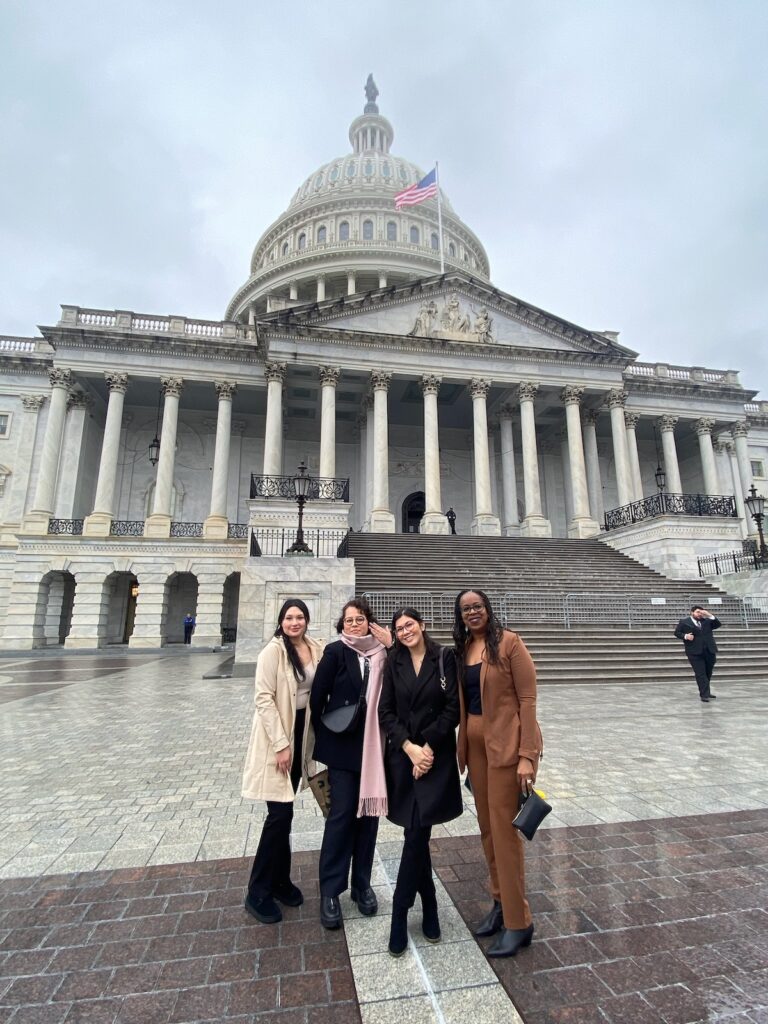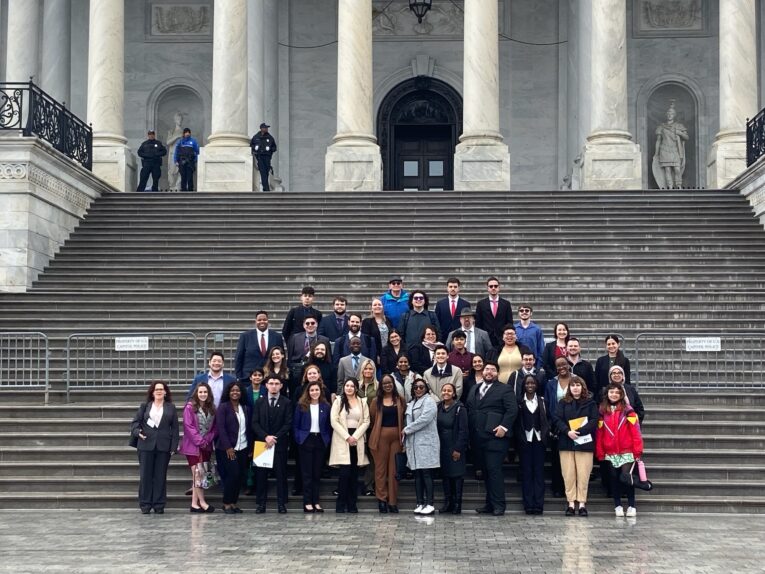This month, CHEPP joined the Today’s Student Coalition for its annual Student Summit in Washington, D.C. We were grateful to participate in this meaningful event that brought more than 70 learners from across the country to meet with our nation’s elected officials. Over the three-day summit, we met incredible learners. Here are some of their stories of persistence:
- A veteran without Veteran Readiness and Employment (VR&E) benefits for more than 6 months was experiencing food insecurity and was under the threat of eviction while enrolled full-time in an on-campus undergraduate program.
- A first-generation student who had hoped to enlist in the military was told by his high school that college was his best option. This individual is now more than $100,000 in debt with one semester to go.
- A mom, who has been on the waiting list for childcare In Michigan for more than 2 years, is a graduate student and full-time employee who has been sending her paycheck directly to a nanny while she waits for care to come through so she can continue her studies and work.
- Mothers, fathers, and grandparents who enrolled in college to support their own career advancement and financial security are continually balancing caregiving responsibilities and jobs.
- Learners with mental health issues, complex medical conditions, and disabilities have run into one barrier after another but keep striving to get the support they need in college.
These learners are resilient, but they shouldn’t have to be — they are succeeding despite being within systems that were not built to serve them. The higher education system was created to serve a narrower population of mostly financially secure individuals pursuing a limited number of careers, a very different population than those seeking higher education today. Despite higher education learners from a variety of backgrounds and with different lived experiences increasingly enrolling, including 24% who are parents and 64% who are working, the system has largely not transformed to meet the needs of today’s learners.
We were fortunate to be joined at the summit by four learners from California who are enrolled in Southern New Hampshire University’s Competency-Based Education (CBE) program through Rivet School, a community partner that provides direct supports and services to learners, including one-on-one coaching and basic needs grants. One thing these four learners had in common is that they believed higher education was not for them. In some cases, they enrolled in colleges that didn’t fit their needs and stopped out. But they didn’t give up; instead, they found Rivet School. Below, these learners explain why their program’s online, flexible model paired with coaching has made it possible for them to get a higher education degree.

- La Quenta is a mom of 3 and grandparent of 2 who works full-time as a school operations manager. “With this program, I still have the ability to dedicate my full attention to my family and work life. Working at my own pace is exactly what I needed to be able to do it all — motherhood, dedicated wife, grandmother, caretaker to my mom, and dedicated employee in a high-demanding job. The feedback from the professors helps out a lot, and my coach is amazing. Weekly video meetings made my studies even easier to get [through] the program.”
- Maria stopped out of college before she enrolled at Rivet. “The SNHU CBE model is giving me a second opportunity at obtaining a bachelor’s degree. I love how flexible it is — I can tackle projects on my own schedule while holding down a full-time job. Plus, the projects are super practical, letting me apply what I learn directly to my work. It’s all about seizing opportunities to make progress on your own time.”
- Cassy shares her story. “As a parent of a three-year-old that works full-time, I never believed a traditional 4-year college was an option for me. I felt discouraged about advancing my education until I found SNHU. SNHU has allowed me to work on my degree fully remote and on my schedule. No parent or student should have to decide between working and making a livable wage or attending college. The CBE program is a phenomenal tool for nontraditional students such as myself who have a limited schedule and still want to obtain a degree.”
- Annae is a 2020 high school graduate who didn’t think she would be able to go to college. “I am very lucky to have come across Rivet School and have the opportunity to earn my degree through SNHU. This program has made it possible for me to balance my work, life, all while earning my degree. I’m grateful for this opportunity and hope that it can reach more students!”
Policymakers at every level need to do more to ensure that learners from all backgrounds can access higher education programs that meet their needs. We hope members in Congress heard these students’ stories and will take action, including:
- Expanding basic needs support through the SNAP program
- Supporting flexible higher education models, including online and competency-based education (CBE) programs that allow learners to move through their studies around their own schedules
- Supporting personalized student coaching and academic advising models with wrap-around supports and services
- Increasing the Pell Grant
- Expanding access to childcare
- Providing support in higher education that address mental health needs
We are grateful to the higher education learners who were willing to travel to Washington, D.C., to share their personal stories and help drive needed policy change.

